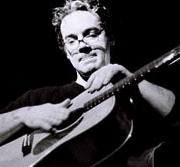in the digital age
THE VALUE OF MUSIC

by
MIKE ERRICO
______________________________________________________
Mike
Errico is a New York-based recording artist, writer, music supervisor
and lecturing professor. He has shared the stage with Raul Midon,
Jonny Lang, Guster, Soulive, Bob Weir, Amos Lee, Ben Folds,
Dido, Warren Zevon, Dan Wilson, Derek Trucks and many others.
For more on Mike, visit his website: www.errico.com
Music is a moral law.
It gives soul to the universe,
wings to the mind, flight to the imagination,
and charm and gaiety to life and to everything.
Plato
Music is your only friend,
until the end.
James Douglas Morrison
One
of the biggest debates surrounding the new music economy centers
around the idea that “music has no inherent value.”
It’s the kind of assertion that led producer Steve Albini
to proclaim recently that “copyright has expired.”
It is the undercurrent that fuels a lot of the math surrounding
what a stream should be worth. Like any such calculation, the
ancient parameters exist: How plentiful is it? What is the demand
for it? How hard is it to acquire? It’s Econ 101 stuff,
and to be sure, in the streaming economy, those variables have
been shaken up.
How
plentiful is it? Super-plentiful. The Internet is clogged with
it. Good, bad, ugly -- ?remixes and parodies and cover versions
and jingles from your childhood. On top of that, for the first
time, all of recorded music is available to a consumer at once.
That’s a huge drain on value, right?
What
is the demand for it? Interesting: demand is up. Data is also
finding what fans have always known, which is that there are
thriving scenes that fly ‘under the radar.’ (Separate
debate: What is ‘the radar,’ exactly? Point is,
demand is up, and it’s broad).
How
hard is it to acquire? From both producer and consumer standpoints,
it’s easier than ever. Hit songs have been created on
GarageBand, and others have used pre-cleared Apple drum loops;
on the other end of the earbuds, a vast majority of people can’t
tell the difference between a WAV file and an MP3, making fidelity
a nonstarter on a mass scale. (By the way, I don’t blame
non-musicians for this. I’m sure I could be similarly
shamed in front of unmarked bottles of $100 Cabernet and Two-Buck
Chuck).
So
what’s the value of music? Let’s take one possibility
off the table: it’s not“zero, because, as we know,
there’s demand. I mean, the value of air is not zero,
plentiful as it still is? -- ?it’s legally protected,
and if you still insist that it has no inherent value, well,
just have it taken from you. See? Value. Are there similar analogies
that can be instructive within the streaming music space? Well,
yes.
The
other day I remembered Paul Auster’s 1995 film Smoke,
which recounts the story of Sir Walter Raleigh wagering Queen
Elizabeth that he could weigh the smoke that his cigar discharged:
That’s
the present value of one service. Remember, that value jumped
$3 billion in three months. Regardless where the number goes,
the equation will hold, just as it still holds for Sir Walter
Raleigh and his cigars over 400 years later.
How
would I know this, or be able to back it up? Well, partially
because, once upon a time, I was the editor of Spiralfrog, a
free, ad-supported music download service looking to kill piracy
with major label licenses, a ping pong table in the postmodern
common space, and a luscious view of the Hudson River, and I
can tell you: Watching a music service dissemble into a fire
sale of its servers, domain name, and laptops looks a lot like
Sir Walter Raleigh’s cigar ash on the other side of the
scale.
So, when someone tells you music has no value, drop some math.